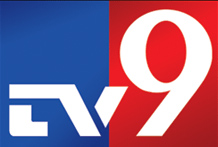Sessions
A range of parallel sessions are planned during the two days. The details of the sessions, speakers will be updated soon. Keep visiting or sign up for the updates.
Session Details
|
Scientific Computing Usage of computers to analyze data or models relating to scientific phenomena, i.e.,Scientific Computing has become a huge and an integral part in Science and Technology development. In fact, scientific computing is one of main drivers for development of hardware and software tools. This session will cover the following basic areas of computing: managing huge amount of data from experiments using databases, simulation of numerical models of scientific phenomena (classical, statistical and quantum mechanics) and finally recent trends in hardware/software adoption among the scientific computing practitioners. Session Coordinator: Prof. Harjinder Singh, IIIT Hyderabad Speakers:
Dr. Prabhakar, IIIT Hyderabad
Dr. Deva PriyaKumar, IIIT Hyderabad
Dr. Chakrapani, IIIT Hyderabad
|
|
Scientific Visualization The overall goal is to expose the participants to the variety of options that are available for visualizing scientific data. We focus specifically on tools usable from the Python programming language. Session Coordinator: Prof. K S Rajan, IIIT Hyderabad Speakers:
Dr. John Hunter - Matplotlib and its applications
Prof. Prabhu Ramachandran, IITB - Visualization using Mayavi
|
|
R and its uses in Scientific Analysis In this session on R the speakers will discuss the origins and the history of R. In addition, they will discuss some uses of R. This will include presentation of data in various forms, how to do some common mathematical operations like multiplying and inverting matrices. In addition some statistical techniques like Session Coordinator: Dr. Rahul Roy, ISI, New Delhi Speakers:
Prof. Deepayan Sarkar (ISI, Delhi) - "An overview of R"
Prof. BG Manjunath (ISI, Delhi) - "Mathematical operations with R" Prof. Swagata Nandi (ISI, Delhi) - "Model fitting with R" |
|
Getting Invoveld in FOSS Projects Getting involved in a FOSS project is simple, easy and fun. It is also an opportunity to contribute back to the wonderful community that provides invaluable software resources for research and learning. This session discusses a step-by-step tale of one such contribution and then the various tools typically used by FOSS projects. Session Coordinator: Sri. Sitaram Chamarty, TCS Speakers:
Sri. Prasad Sunkari - Contributing Back to FOSS Projects
Sri. Sitaram Chamarty - Version Control in FOSS Projects Sri. Sunil Mohan Adapa - Other Tools behind FOSS Projects |
|
FOSS and School EducationPolicy With State governments adopting policies to use Free Software in Schools, today's school students are growing in a culture of learning built on collaboration. Free Software tools like Phoenix, Geogebra, GCompris etc help students learn their subjects. FOSS in schools lays the foundation for the organic development of Science, Technology, Education and Mathematics (STEM). Session Coordinator: Kiran Chandra, FSMI and Swecha Speakers:
Sri. Anvar Saddat, IT @Schools, Kerala
Sri. Jaijit Bhattacharya, HP
|
|
FOSS and Higher Education Policy FOSS has made great headway into Higher Education today with more and more students and teachers opting to employ Free Software Tools for Higher Education. GCC, R etc, are being used extensively in our colleges and universities. Speakers: Sreenivasan @ CDAC |
|
eGov and Open Standards Policy: Government of India has adopted Open Standards as a policy framework in e-Governance. Speakers would be from government organizations, policy making bodies etc. who would discuss on the implications of FOSS based policies and Open standards on nation building. Session Coordinator: Venkatesh Hariharan, Red Hat Speakers:
Sri Venkatesh Hariharan, Red Hat
Dr. P Balasubramanian, OTC, NIC Chennai
Sri. Prabir Purkayastha, Chairperson, Knowledge Commons
Ms. Anjana Sinha, IPS
Dr.P Madhav, Director, Institute for Electronic Governance
|
|
Geospatial technologies (GIS, RemoteSensing) Session Coordinator:
Dr. S Narendra Prasad, SACON
Dr. K S Rajan, IIIT-H
Sri Mohammad Rashad, IIIT-H
|
|
Grid and Cloud computing Grid Computing has been around for quite a long time now. Grid computing provides the opportunity to use heterogeneous, distributed resources as single, unified computing resource. Like power Grid, the Grid also provides consistent, pervasive, secured and transparent access to all the existing computational resources. On the other hand, cloud computing infrastructure is built on servers that employ virtualization technology to deliver efficient resource utilization typically, for the sake of economy.
This session will provide an overview for both paradigms and will allow the audience to judge the relative merits and demerits in both. The session will also focus on their deployments and major applications based on them.
Session Coordinator: Prof. Nandini Mukerjee, Jadavpur University, Kolkata Speakers:
Sri Ch A S Murty, C-DAC, Hyderabad
Sri. N Satyanarayana, C-DAC, Hyderabad
Prof. A.R. Thakur, Vice Chancellor, West Bengal State University Sri. Sunirmal Khatua, Calcutta University Sri. Snehasis Sinha, Yahoo India |
|
Mobile applications: Programming for areas such as health, pollution monitoring Session Coordinator: Prof. K. Gopinath, IISc, Bangalore Speakers:
Sri R Subramanyam IAS, Principal Secretary RD, Govt. of AP - AP Govt's experience
Sri. Debashis, IISc - On visualization on mobiles for health applicaitons
Ms. Prachee - on feasibility of local processing in mobiles health applications
|
|
Natural Language Processing and Machine Translation A large number of good quality tools and resources are already available under GPL compatible licences which can be adapted for building English to Indian and Indian to Indian language machine translation systems as well as other NLP tools. However, for this to be feasible a critical number of institutes and/or individuals need to join hands to act in the spirit of cooperation. In this regard the current status of the activity and the results achieved so far will be presented. Session Coordinator: Prof. Rajeev Sangal, IIIT Hyderabad Speakers: Dr. (Mrs.) Amba P. Kulkarni - Developing morphological tools for Indian languages
Sriram Chaudhury - Developing English to Indian language accessor cum machine translation systems Prof. Navjyoti Singh - Socionity - Collaborative content creation for schools |
|
Technical Aspects of Indic Computing: searching, sorting, analysis of corpus for prediction, coding, etc. Technical aspects of Indic computing" aims to discuss issues related to issues related to Indic Language encoding, sorting, search, corpus creation and allied subjects. The term Indic computing means computing Indic scripts and Languages. It involves the development of language processing tools like text to speech system, spell checker, grammar checker, machine translation systems and language processing resources like fonts and corpora. For the past few decades many open communities and institutions are working in this direction. Many of them succeeded in creating practical tools and resources for different language computing tasks. Still there are some bottle necks which affects smooth adoption of Natural Language Processing techniques to Indic Language Computing . The sessions discusses issues, challenges and solution related the Indic Computing
Session Coordinator: Mr. Jaganadh G |
|
Environmental Simulation and Modelling Session Coordinator: Prof. T.V Ramachandra, IISc, Bangalore Seakers:
1. Uttam Kumar - Scope and Potential of FOSS (GRDSS - A open source GIS, R)
2. Bharath Settur - Urban sprawl modelling using FOSS (GRDSS, QGIS)
3. Bharath H. Aithal - Environment modelling and simulation through FOSS
|
|
Legal aspects of FOSS The session will focus on legal issues like trademark, copyright and patents related to Free and Open Source Software(FOSS). The session will touch upon the different types of licenses ranging from the various Creative Commons licenses that could be used for Research publications to copyleft licenses like GPL. Patents in the area of software is an area of concern as it could cause impediments to the development of FOSS. Session Coordinator: Prof. Madabhushi Sridhar, Nalsar University Speakers:
Sri. Prasanth Sugathan
Prof. Madabhushi Sridhar, Nalsar University
|
|
Embedded Technologies Session Coordinator: Prof. Pratap Reddy and Prof. Shankar, JNTU Hyderabad |
|
Bioinformatics and Open Source Biology Session Coordinator: Prof. Ashoke Ranjan Thakur,Vice Chancellor, West Bengal State University |







